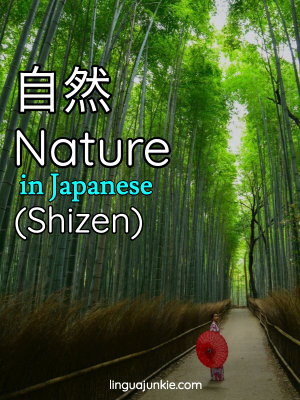The Japanese language has plenty of nature words.
And in this guide, you’ll pick up some interesting Japanese nature words — along with the pronunciations and explanations.
But, if you’re here to know what nature means in Japanese, it’s “shizen.”
So, read on — here are the 18+ Japanese nature words.
 | Want to get Free Japanese Workbooks? Click here to get the workbooks at JapanesePod101. |
1. 自然 Nature
- Pronunciation
- Shizen
In Japanese, the word for nature is “shizen”. This can apply to the outdoors but it can also mean natural. Natural foods and products can also be described by this word.
And nature in Japanese kanji is… 自然, a combination of 自 which can mean “self/auto” or “natural/spontaneous” and 然 which represents “state” (as in, the state of things.) So, literally meaning, “a natural state.”
2. 木 Tree
- Pronunciation
- Ki
This is one of the most common Japanese nature words that you’ll learn — “ki.”
The word for tree, “ki”, is represented by the kanji character that is supposed to depict the shape of a tree. Notice how the shape of the kanji has a trunk that is vertical with branches coming out from the sides. This word for tree can be used in a wide variety of compound words that describe trees.
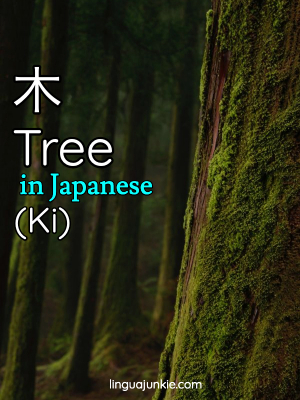
3. 林 Forest
- Pronunciation
- Hayashi
When two kanji characters for the word tree are put together into one, it forms the word for forest. However, the word “hayashi” represents forests that are more man-made and maintained than wild forests. So, keep that in mind. Why?
Because there are more words for forest in Japanese.
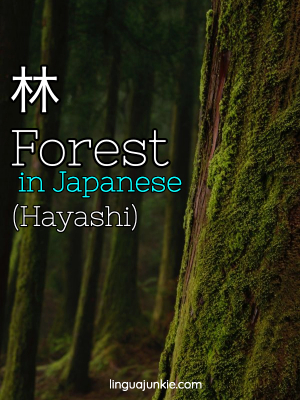
4. 森 Forest
- Pronunciation
- Mori
“Mori” is the word for forest when three of the kanji characters for tree are put together.
This word is different from “hayashi” in the sense that it represents extensive wild forests. If you went to a giant nature preserve, the forest there would be a “mori” and not a “hayashi”.
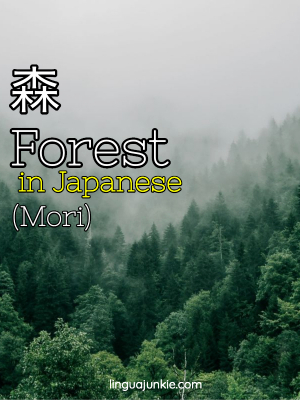
5. 森林 Forest
- Pronunciation
- Shinrin
Yes, there’s a 3rd word for forest in Japanese!
But, “shinrin” refers to forests with particularly large and tall trees. Unlike “hayashi” and “mori”, there is a connotation that the forest is old and has ancient trees. There is a total of five smaller “tree” kanji in this word which makes it a word with particularly strong imagery.
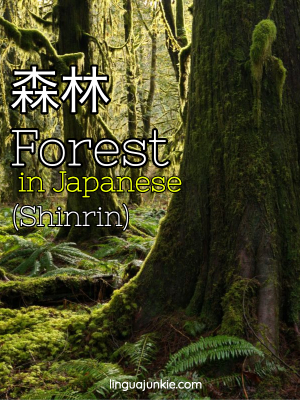
6. 木目 Tree rings
- Pronunciation
- Mokume
A unique nature word for tree rings is “mokume”. Large trees in Japan will have a significant amount of tree rings that show their old age. Wood crafts are also popular in Japan and they will showcase the “mokume” or tree rings.
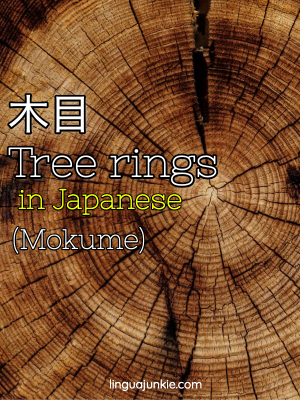
7. 新緑 Fresh leaves
- Pronunciation
- Shinryoku
- Fresh leaves
This is a Japanese nature word that doesn’t have an exact translation in English. “Shinryoku” directly translates to “new green”. It refers to the trees during the springtime when the leaves are just sprouting. Those leaves have a much lighter color than during the summertime.
5. 紅葉 Changing leaves during the Fall
- Pronunciation
- Kouyou
This is one of the most common Japanese autumn words to know.
“Kouyou” refers to the leaves during the fall when they are changing colors. In Japanese, it is represented by one word and an important part of Japanese culture. Many people go out to the mountains of Japan to see the “kouyou.”
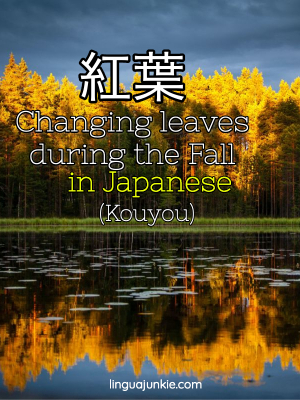
6. 大自然 The great outdoors
- Pronunciation
- Daishizen
- The great outdoors
“Shizen” means nature, but “daishizen” refers to the outdoors that are vast and expansive. If you went on a safari with a huge area of protected wildlife it would be called “daishizen.” Literally, the word is “big nature” because the “dai” 大 kanji means “big.”
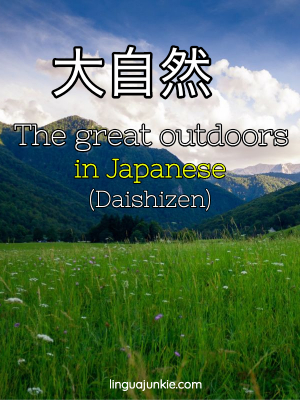
7. 木漏れ日 Sunshine filtering through the leaves
- Pronunciation
- Komorebi
One of the more unique Japanese nature words here is… “komorebi”. This represents the sunlight that comes through a wooded forest from the trees. The light that is filtered through the trees casts a magical light into the forest. You’ll also find this on my list of beautiful Japanese words.
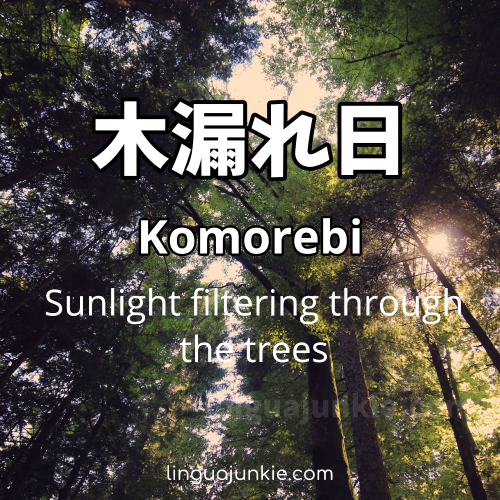
8. 登山 Mountaineering
- Pronunciation
- Tozan
Mountaineering is a popular activity for nature lovers in Japan and there are over 16,000 different mountains across the country. Because there are also many volcanos, there are plenty of natural hot springs to enjoy after a long day of hiking.

9. 茂み Shade from trees
- Pronunciation
- Shigemi
In English, we only have one word for “shade” which can refer to shade from roofs, umbrellas, and trees. However, in Japanese, “shigemi” refers to the shade created from trees and bushes. Animals will often hide in the “shigemi” so they are not found.
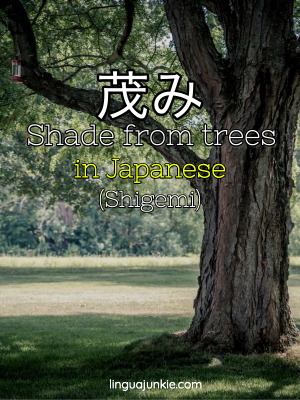
10. けもの道 Animal path/wild trails
- Pronunciation
- Kemono michi
“Kemono” in Japanese means wild animals or monsters. This word refers to the trails that are created naturally in a forest by wild animals. It can also be wild trails that only a few people have traveled through.
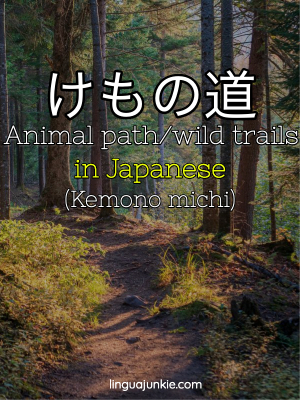
11. 咲く To bloom
- Pronunciation
- Saku
If you go out into nature during the spring in Japan, you’ll find many blooming flowers.
Bloom in Japanese is “saku” and you can use it as a verb.
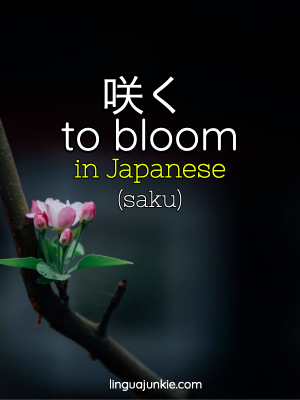
12. つぼみ Bud
- Pronunciation
- Tsubomi
- Bud
This is a cute Japanese word that refers to the bud of a flower. In the early spring, you’ll see the buds of cherry blossom trees in Japan! Also one of the most useful Japanese spring words to know.
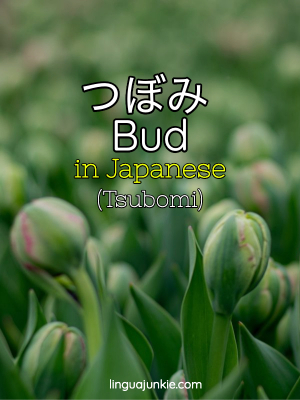
13. 空 Sky
- Pronunciation
- Sora
This refers to the sky in Japanese. You might also think of it as a female name but these days it can also be a popular name for boys!
The kanji character depicts the sky because of the way the lower part can look like the ground (工) and the top part could be like the clouds or sunshine (穴).
14. 土 Dirt/soil
- Pronunciation
- Tsuchi
Dirt is represented by 土 or “tsuchi”. This is useful if you want to describe the type of soil that you’re stepping on a trail. For example, it can be soft or hard “tsuchi”.
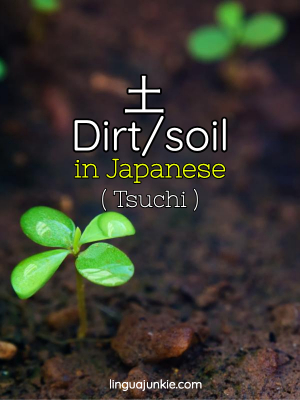
15. 湖 Lake
- Pronunciation
- Mizuumi
Lake in Japanese is “mizuumi”. Lakes are not as common as mountains but there are still around 100 lakes across Japan. In particular, lake Biwa is not to be missed as it is one of the oldest lakes in the world dating millions of years.
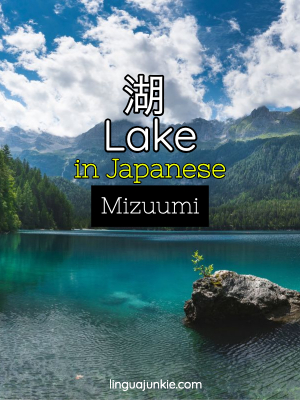
16. かわら River bank
- Pronunciation
- Kawara
River banks are known as “kawara” in Japanese.
These are popular spots for picnicking outside when the weather is nice.
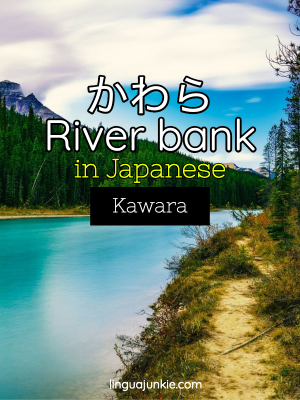
17. 洞窟 Cave
- Pronunciation
- Doukutsu
“Doukutsu” or caves can also be found if you’re exploring the nature of Japan. There are several limestone caves that can be visited in Japan where you can see natural limestone formations.
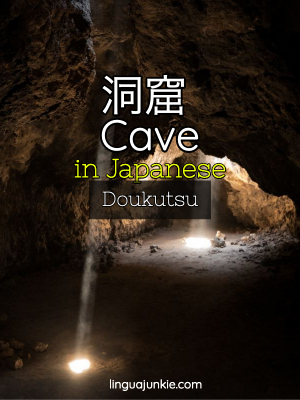
18. 地面 Ground
- Pronunciation
- Jimen
The ground is represented by the word “jimen” in Japanese. 地面 is made up of two kanji characters which mean “earth” and “surface”. It is literally the earth’s surface but it can mean the ground or dirt as well.
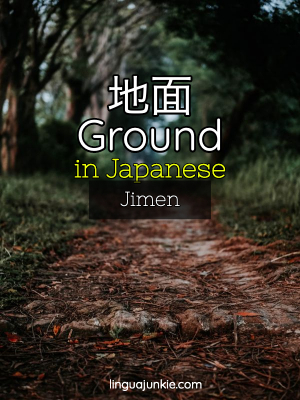
19. 景色 Scenery
- Pronunciation
- Keshiki
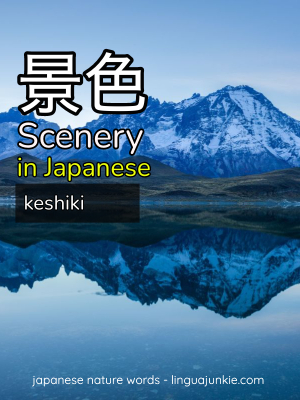
20. 葉 Leaf
- Pronunciation
- Ha
This word is very easy to remember but the Kanji will require a bit of work.
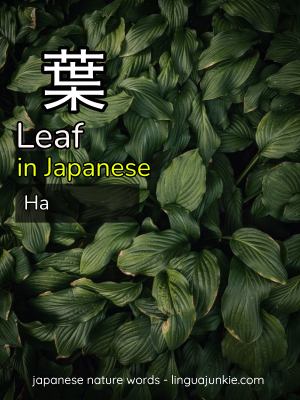
21. 枝 Branch
- Pronunciation
- Eda
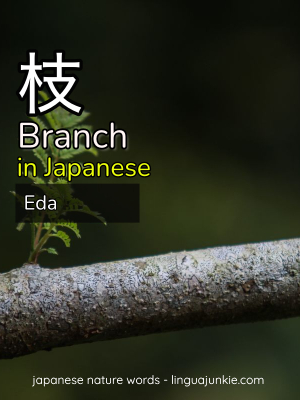
22. 花 Flower
- Pronunciation
- Hana
A very common word and also a common Japanese female name!
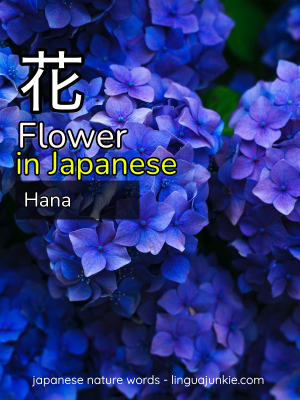
23. 草 Grass
- Pronunciation
- Kusa
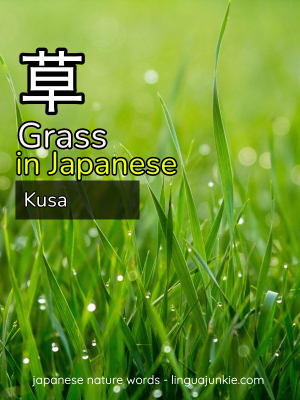
24. 苔 Moss
- Pronunciation
- Koke
You’ll find moss all over the place in Japan. On trees. In gardens. On laterns. In fact, it’s kind of an aesthetic. And you can also get your very own moss balls (marimo moss balls) for an aquarium.
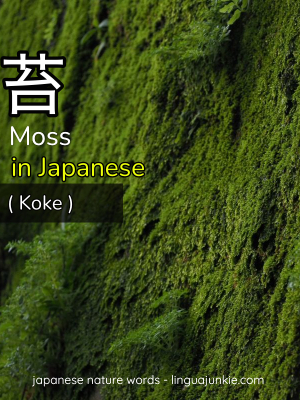
25. 地衣類 Lichen
- Pronunciation
- Chiirui
26. 畑 Field
- Pronunciation
- Hatake

27. 山 Mountain
- Pronunciation
- Yama
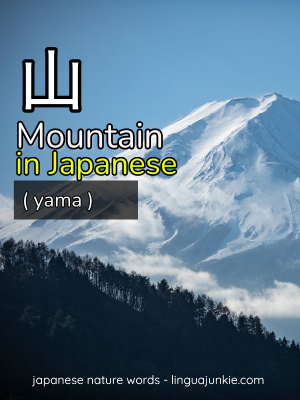
28. 谷 Valley
- Pronunciation
- Tani
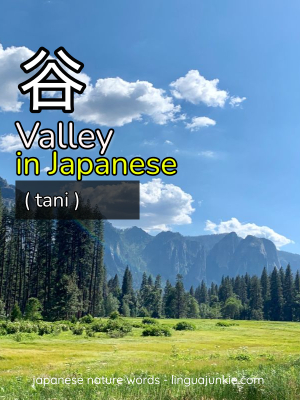
29. 島 Island
- Pronunciation
- Shima
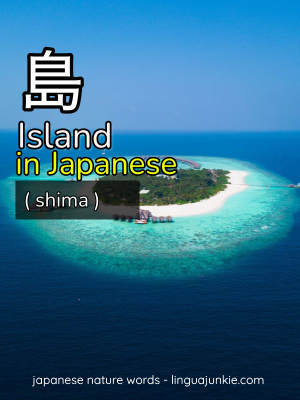
30. 地面 Rock/Stone
- Pronunciation
- Iwa
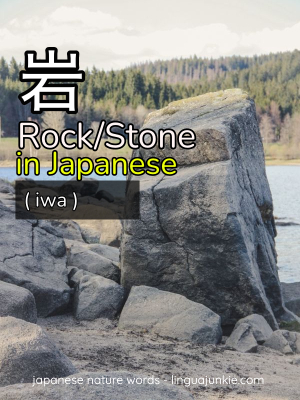
31. 滝 Waterfall
- Pronunciation
- Taki

32. 池 Pond
- Pronunciation
- Ike
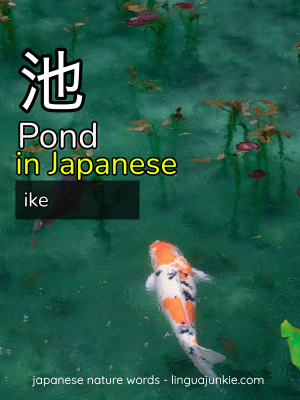
33. 竹 Bamboo
- Pronunciation
- Take

Back to You!
Now you know a whole bunch of Japanese nature words.
The Japanese language has a variety of other interesting words, where you’ll also find other nature-related words. So check out the links below:
Anyway, which word was your favorite?
Leave a comment! I read them all.
– The Main Junkie
